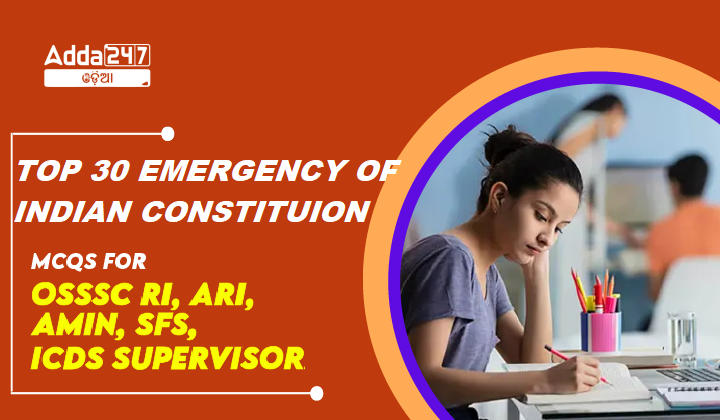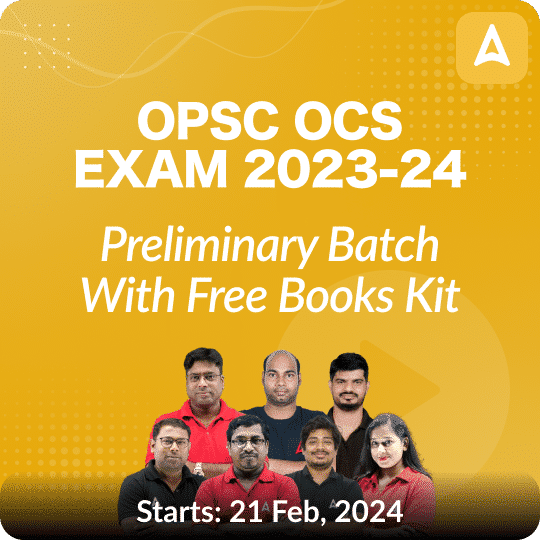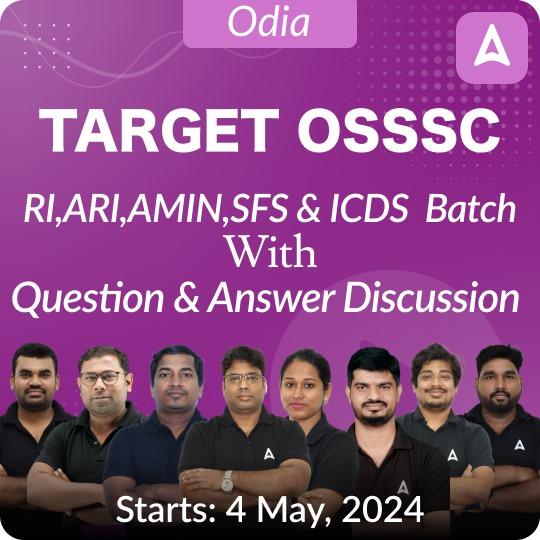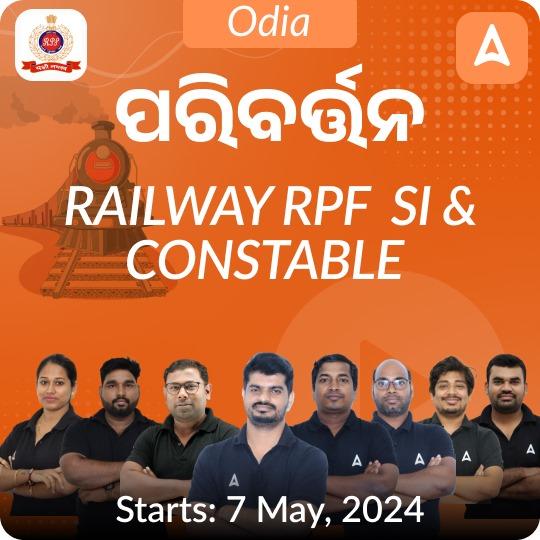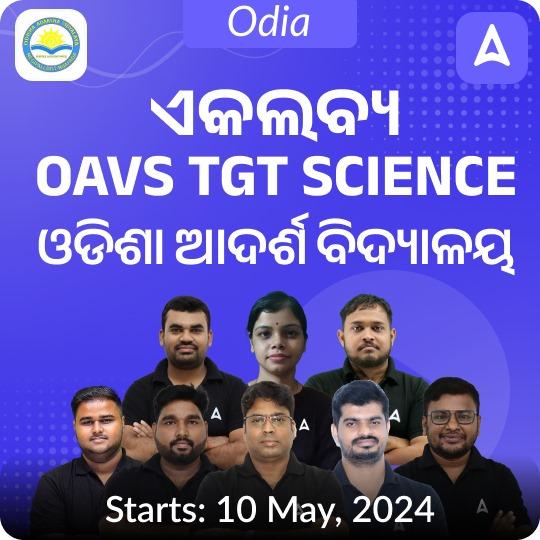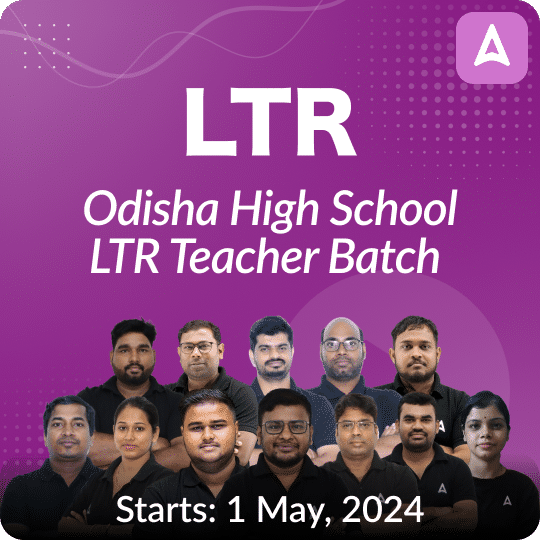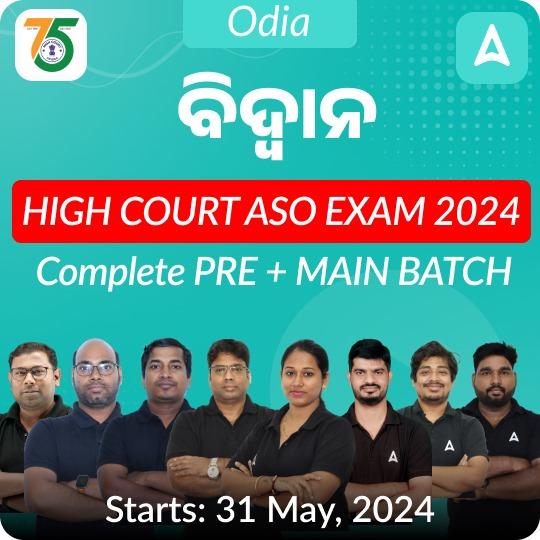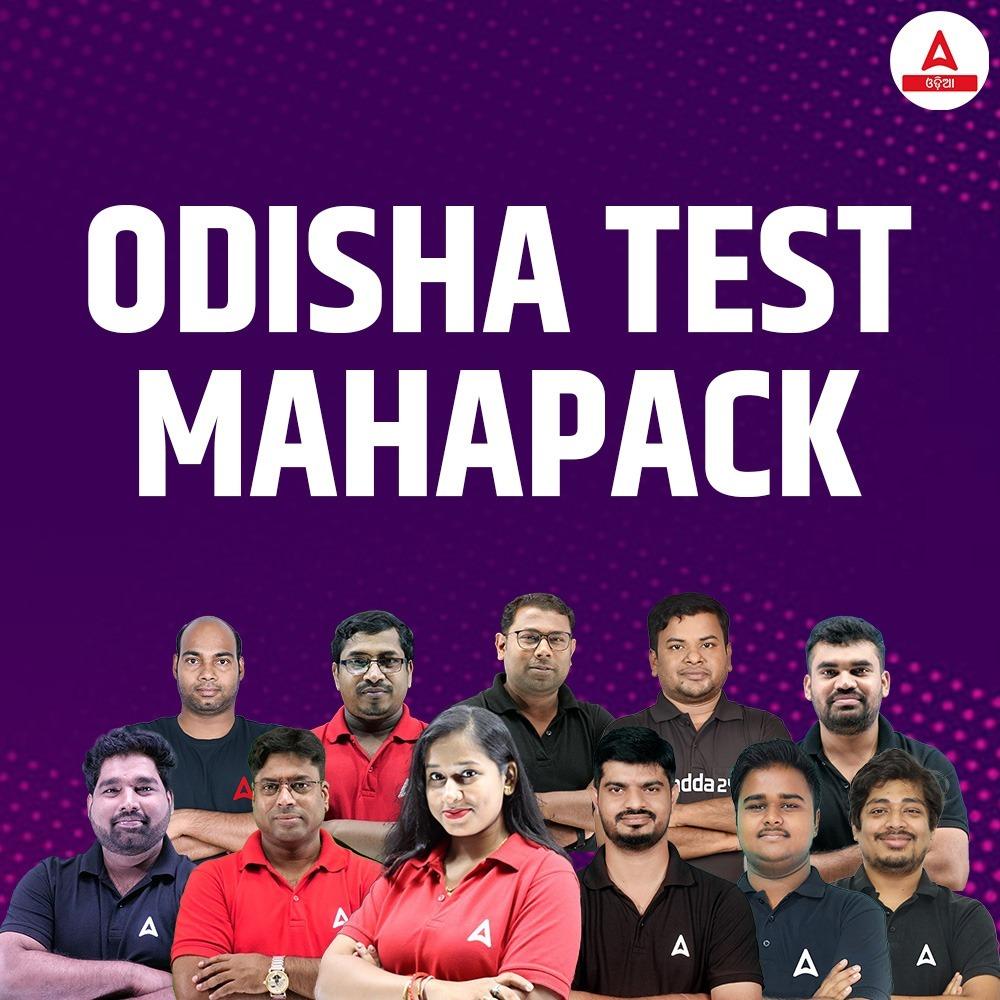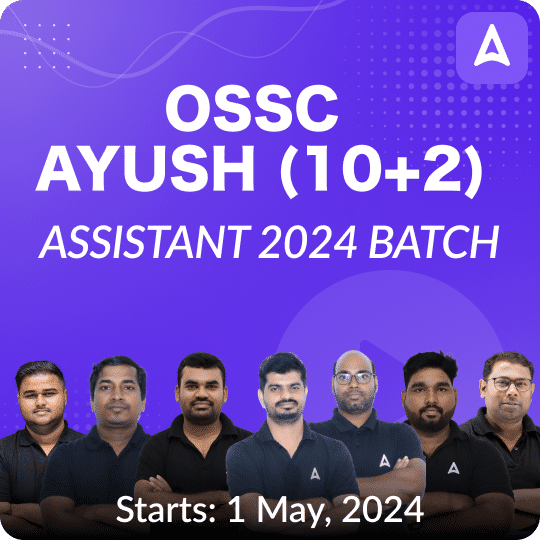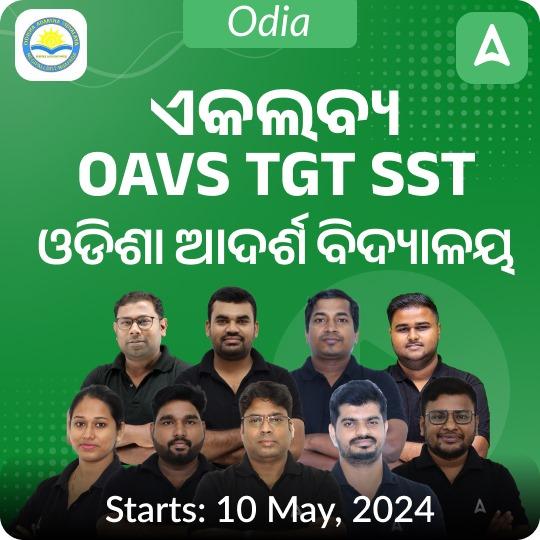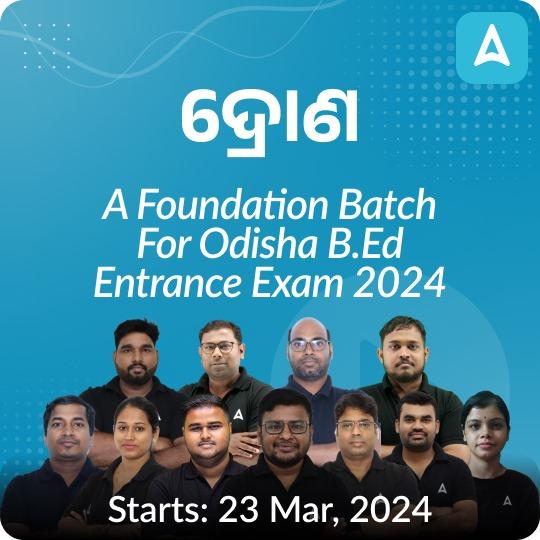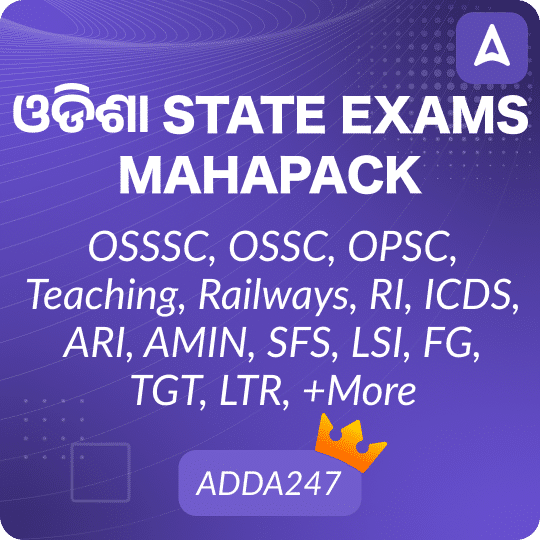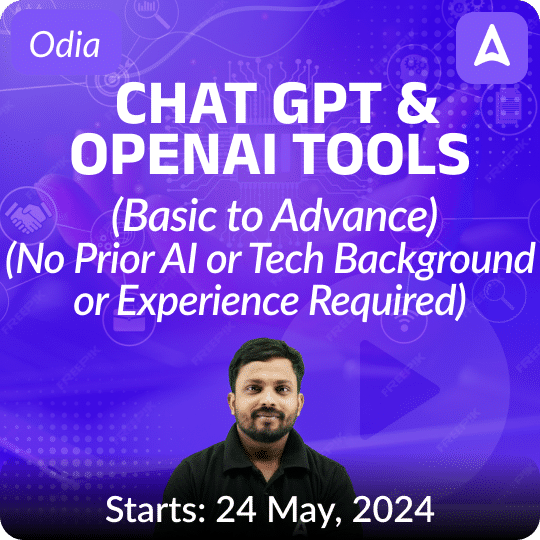In the realm of Indian constitutional law, understanding emergency provisions holds paramount importance. These provisions are pivotal in safeguarding the nation’s integrity, security, and democratic fabric during times of crisis. For aspirants preparing for competitive exams such as OSSSC RI, ARI, Amin, SFS, and ICDS Supervisor, mastering the top 30 emergency provisions of the Indian Constitution is not just advantageous but crucial.
Top 30 Emergency Of Indian Constitution MCQS For OSSSC RI,ARI, Amin, SFS, ICDS Supervisor
Mastering the top 30 emergency provisions of the Indian Constitution is not just a prerequisite for cracking competitive exams but also a responsibility for citizens aspiring to contribute to the nation’s governance and stability. Aspirants must delve deep into the nuances of these provisions, understanding their implications and applications in various scenarios. With a thorough grasp of emergency provisions, aspirants can navigate through questions confidently and emerge successful in their endeavors.
- What triggers the declaration of a National Emergency in India?
- a) Economic instability
- b) War, external aggression, or armed rebellion
- c) Political unrest
- d) Natural disasters
- Answer: b) War, external aggression, or armed rebellion
- Who has the authority to declare a National Emergency in India?
- a) Prime Minister
- b) Parliament
- c) President
- d) Supreme Court
- Answer: c) President
- Under which article of the Indian Constitution is the provision for National Emergency found?
- a) Article 356
- b) Article 360
- c) Article 352
- d) Article 370
- Answer: c) Article 352
- During a National Emergency, the President can suspend fundamental rights under which article of the Constitution?
- a) Article 356
- b) Article 359
- c) Article 360
- d) Article 370
- Answer: b) Article 359
- Which of the following fundamental rights cannot be suspended during a National Emergency?
- a) Right to Freedom of Speech and Expression
- b) Right to Equality
- c) Right to Life and Personal Liberty
- d) Right to Constitutional Remedies
- Answer: c) Right to Life and Personal Liberty
- Who advises the President of India in the declaration of a National Emergency?
- a) Supreme Court
- b) Governor of the concerned state
- c) Council of Ministers
- d) Chief Justice of India
- Answer: c) Council of Ministers
- How long does a proclamation of National Emergency initially last?
- a) 1 month
- b) 3 months
- c) 6 months
- d) 1 year
- Answer: c) 6 months
- Can a proclamation of National Emergency be extended beyond the initial period without parliamentary approval?
- a) Yes
- b) No
- Answer: b) No
- What action does the government typically take during a National Emergency?
- a) Enforcing curfews nationwide
- b) Restricting civil liberties
- c) Imposing martial law
- d) Allowing free speech and dissent
- Answer: b) Restricting civil liberties
- Who can challenge the validity of a National Emergency proclamation in the courts?
- a) Any citizen of India
- b) Only the Prime Minister
- c) Only the opposition party
- d) The President
- Answer: a) Any citizen of India
11. What is another term for State Emergency as per Article 356 of the Indian Constitution?
-
-
- a) National Emergency
- b) Governor’s Rule
- c) President’s Rule
- d) Legislative Emergency
- Answer: c) President’s Rule
-
12. Under what circumstances can President’s Rule be imposed in a state?
-
- a) Economic instability
- b) Political instability or failure of constitutional machinery
- c) Natural disasters
- d) External aggression
Answer: b) Political instability or failure of constitutional machinery
13. Who typically sends a report to the President signaling the need for President’s Rule in a state?
-
-
- a) Chief Minister
- b) State Legislative Assembly
- c) State Governor
- d) Union Home Minister
- Answer: c) State Governor
-
14. Who has the authority to declare President’s Rule in a state?
-
- a) State Governor
- b) Prime Minister
- c) President of India
- d) Chief Minister
- Answer: c) President of India
15. How long can President’s Rule initially last in a state before it needs parliamentary approval for extension?
-
- a) 3 months
- b) 6 months
- c) 1 year
- d) 2 years
- Answer: b) 6 months
16. Which of the following statements is true regarding the powers of the President during President’s Rule?
-
- a) The President can dissolve the State Legislative Assembly.
- b) The President can appoint a new Chief Minister.
- c) The President can take direct control over the administration of the state.
- d) The President can declare emergency rule in neighboring states.
- Answer: c) The President can take direct control over the administration of the state.
17. Who assumes the role of the executive head of the state government during President’s Rule?
-
- a) Chief Minister
- b) Governor
- c) President
- d) Lieutenant Governor
- Answer: b) Governor
18. What action does the President usually take after the imposition of President’s Rule in a state?
-
- a) Dissolve the State Legislative Assembly
- b) Call for fresh elections within 1 month
- c) Appoint a new Chief Minister
- d) Issue an ordinance to restore normalcy
- Answer: a) Dissolve the State Legislative Assembly
19. In the absence of President’s Rule, which entity is responsible for the governance of a state?
-
- a) Union Government
- b) President of India
- c) State Legislative Assembly
- d) State Governor
- Answer: c) State Legislative Assembly
20. Under what circumstances can a Financial Emergency be declared in India?
-
- a) Economic recession
- b) Financial instability or threat to India’s financial stability or credit
- c) Currency devaluation
- d) Budget deficit
- Answer: b) Financial instability or threat to India’s financial stability or credit
21. Who has the authority to declare a Financial Emergency in India?
-
- a) Prime Minister
- b) Finance Minister
- c) President of India
- d) Reserve Bank of India
- Answer: c) President of India
22. What powers does the President gain upon the declaration of a Financial Emergency?
-
- a) Direct control over the state legislatures
- b) Authority to amend the Constitution
- c) Ability to issue directives to states on financial matters
- d) Control over the stock market
- Answer: c) Ability to issue directives to states on financial matters
23. How long can a proclamation of Financial Emergency initially last?
-
- a) 3 months
- b) 6 months
- c) 1 year
- d) 2 years
- Answer: b) 6 months
24. Which of the following statements regarding Financial Emergency is true?
-
- a) It leads to the suspension of the President’s Rule in states.
- b) It primarily affects the functioning of the judiciary.
- c) It empowers the President to control the financial resources of the country.
- d) It can be declared by the Prime Minister.
- Answer: c) It empowers the President to control the financial resources of the country.
25. What action can the President take to address the financial crisis during a Financial Emergency?
-
- a) Increase taxes nationwide
- b) Borrow funds from international organizations
- c) Issue directives to states to follow financial guidelines
- d) Impose tariffs on imports
- Answer: c) Issue directives to states to follow financial guidelines
26.How many times has a Financial Emergency been declared in India since independence?
-
- a) Once
- b) Twice
- c) Thrice
- d) Never
- Answer: d) Never
27. How long can a national emergency be in force without parliamentary approval?
-
- a) 1 month
- b) 3 months
- c) 6 months
- d) 1 year
- Answer: c) 6 months
28. During a state of emergency, which branch of government continues to function?
-
- a) Executive
- b) Legislative
- c) Judicial
- d) Administrative
- Answer: b) Legislative
29. What role does the Supreme Court of India play during emergencies?
-
- a) It enforces emergency declarations.
- b) It checks the validity of emergency declarations and protects citizens’ rights.
- c) It suspends its functions.
- d) It advises the President on emergency matters.
- Answer: b) It checks the validity of emergency declarations and protects citizens’ rights.
30. Which fundamental rights cannot be suspended even during a national emergency?
-
- a) Right to Freedom of Speech
- b) Right to Equality
- c) Right to Life and Personal Liberty
- d) Right to Property
- Answer: c) Right to Life and Personal Liberty


